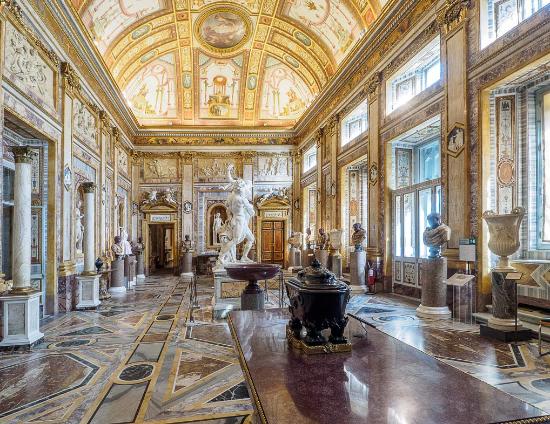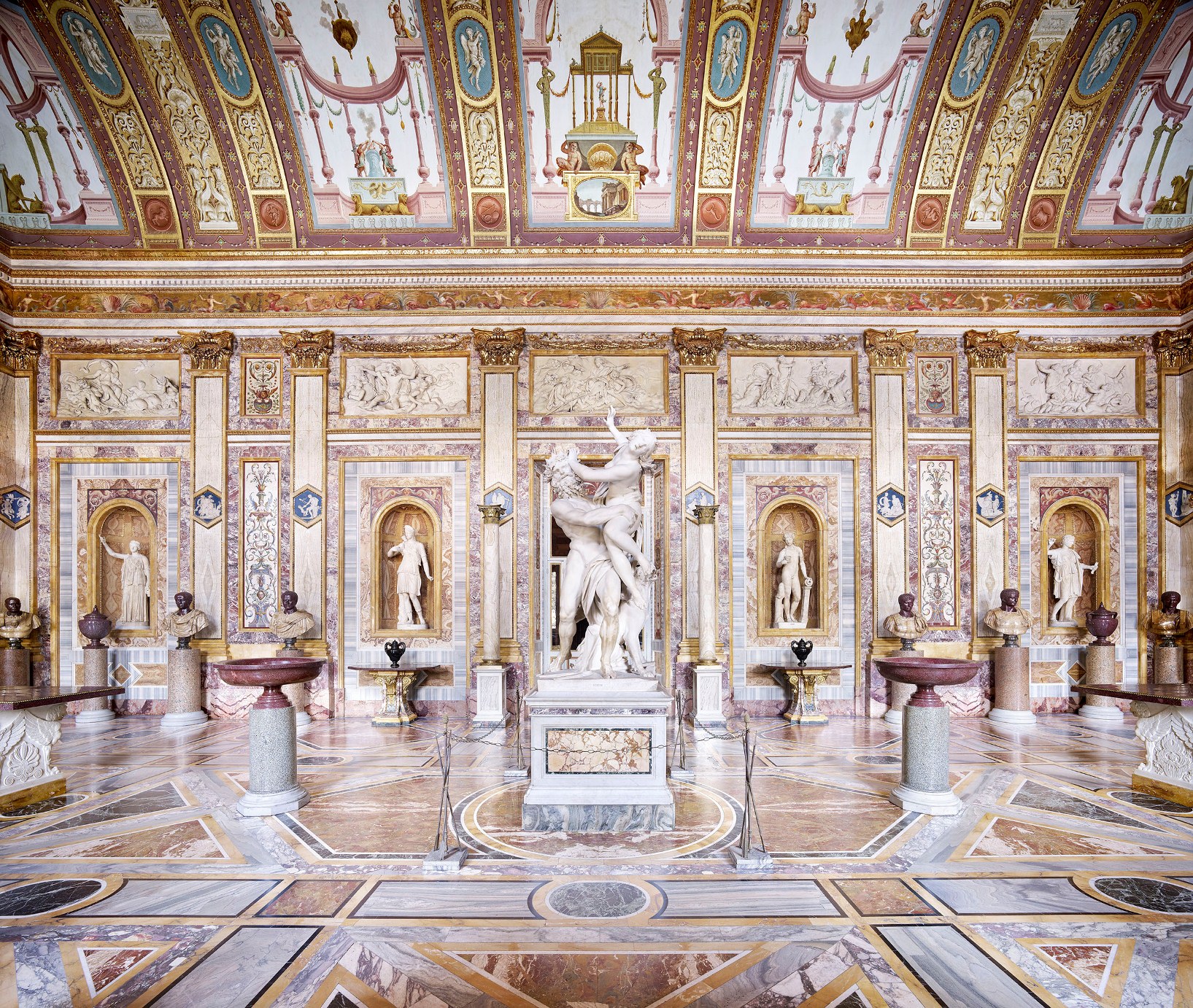The Galleria Borghese is an art gallery in Rome, Italy, housed in the former Villa Borghese Pinciana. At the outset, the gallery building was integrated with its gardens, but nowadays the Villa Borghese gardens are considered a separate tourist attraction. The Galleria Borghese houses a substantial part of the Borghese collection of paintings, sculpture and antiquities, begun by Cardinal Scipione Borghese, the nephew of Pope Paul V (reign 1605–1621). The Villa was built by the architect Flaminio Ponzio, developing sketches by Scipione Borghese himself, who used it as a villa suburbana, a country villa at the edge of Rome.

Scipione Borghese was an early patron of Bernini and an avid collector of works by Caravaggio, who is well represented in the collection by his Boy with a Basket of Fruit, St Jerome Writing, Sick Bacchus and others. Other paintings of note include Titian's Sacred and Profane Love, Raphael's Entombment of Christ and works by Peter Paul Rubens and Federico Barocci.
The Galleria Borghese includes twenty rooms across two floors.
The main floor is mostly devoted to classical antiquities of the 1st–3rd centuries AD (including a famous 320–30 AD mosaic of gladiators found on the Borghese estate at Torrenova, on the Via Casilina outside Rome, in 1834), and classical and neo-classical sculpture such as the Venus Victrix.
The main floor's main large room, called the Salone, has a large trompe l'oeil ceiling fresco in the first room by the Sicilian artist Mariano Rossi makes such good use of foreshortening that it appears almost three-dimensional. The fresco depicts Marcus Furius Camillus relieving the siege of the Capitoline Hill by the Gauls. The grotteschi decorations were painted by Pietro Rotari, and the animal decorations by Venceslaus Peter Boemo.

The first room off the Salone, is the Camera di Cerere, with marble vase depicting Oedipus and the Sphinx. The second room has a ceiling frescoed by Francesco Caccianiga with the Fall of Phaeton. The third room houses Bernini's Apollo and Daphne.

Truth Unveiled by Time by Bernini. c. 1645-1652
Apollo and Daphne by Bernini. c. 1622
David by Bernini. c. 1623-1624
Pauline Bonaparte by Antonio Canova.

Melissa by Dosso Dossi. c. 1507
Saint Jerome Writing by Caravaggio. c. 1606

The Deposition by Raphael. c. 1507

The Last Supper by Jacopo Bassano. c. 1546

The Concert by Gerrit van Honthorst. c. 1626-1630

Madonna and Child by Giovanni Bellini. c. 1510
The Casino Borghese was erected an area that in the seventeenth-century was outside of the walls of Rome, with the closest access being the Porta del Popolo. At the origins, the villa grounds covered an area with a circumference of nearly 3 miles. The main building was designed by the Flemish architect Giovanni Vasanzio. The portico had spolia derived from the Arch of Claudius, once on the Via Flaminia.

By 1644, John Evelyn described it as "an Elysium of delight" with "Fountains of sundry inventions, Groves and small Rivulets of Water". Evelyn also described the Vivarium that housed ostriches, peacocks, swans and cranes "and divers strange Beasts". Prince Marcantonio IV Borghese (1730-1800), who began the recasting of the park's formal garden architecture into an English landscape garden, also set out about 1775, under the guidance of the architect Antonio Asprucci, to replace the now-outdated tapestry and leather hangings and renovate the Casina, restaging the Borghese sculptures and antiquities in a thematic new ordering that celebrated the Borghese position in Rome. The rehabilitation of the much-visited villa as a genuinely public museum in the late eighteenth century was the subject of an exhibition at the Getty Research Institute, Los Angeles, in 2000, spurred by the Getty's acquisition of fifty-four drawings related to the project.

In 1808, Prince Camillo Borghese, Napoleon's brother-in-law, was forced to sell the Borghese Roman sculptures and antiquities to the Emperor. The result is that the Borghese Gladiator, renowned since the 1620s as the most admired single sculpture in Villa Borghese, must now be appreciated in the Musée du Louvre. The "Borghese Hermaphroditus" is also now in the Louvre. The Borghese villa was modified and extended down the years, eventually being sold to the Italian government in 1902, along with the entire Borghese estate and surrounding gardens and parkland.